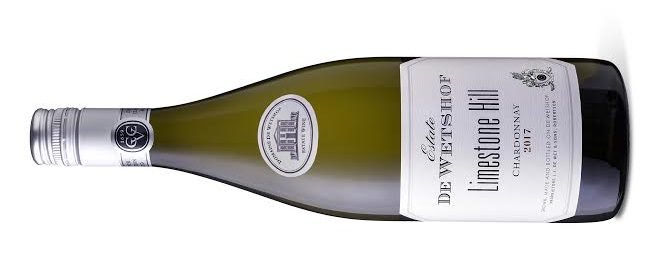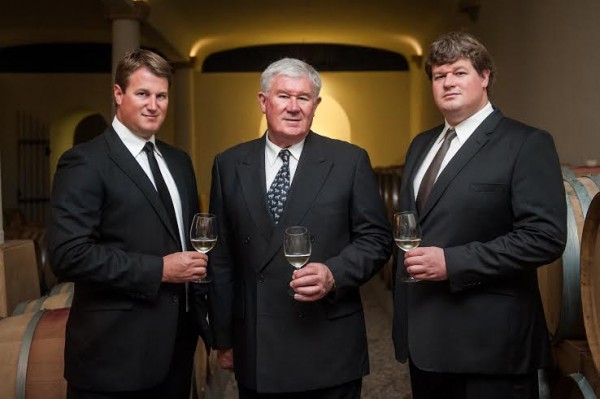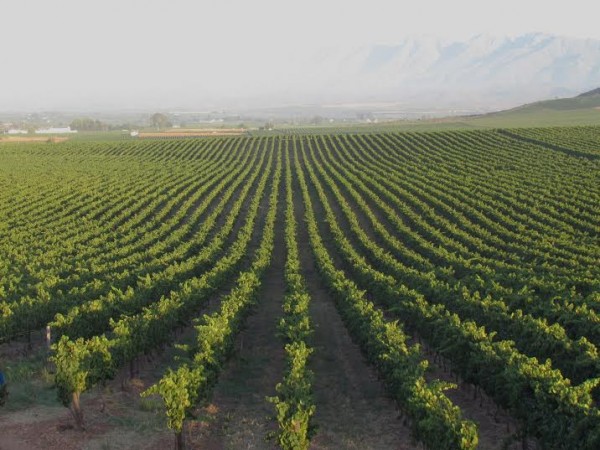By achieving the highest rating for unwooded Chardonnay at this year’s Veritas Wine Awards, De Wetshof Estate from Robertson becomes arguably the most awarded unwooded Chardonnay producer in South Africa. At this year’s Veritas, three of the top awards in the unwooded Chardonnay category went to the De Wetshof Limestone Hill, Danie de Wet Sur Lie and Bon Vallon – all these Gold Medal-winning wines were from the notoriously hot and dry 2018 vintage.
The fourth Gold medal for De Wetshof went to the Nature in Concert Pinot Noir 2017.
De Wetshof has dominated the Veritas unwooded Chardonnay category since 2015. Last year Limestone Hill and Bon Vallon 2017 won the only two Gold medals in the unwooded-section. In 2016 the Limestone Hill 2016 won the only Double Gold medal, with Bon Vallon 2016 and Limestone Hill 2016 (Woolworths) achieving Gold. And at the 2015 Veritas, only two Gold medals were awarded in this category, namely De Wetshof Limestone Hill 2015 and Limestone Hill 2015 (Woolworths).
Johann de Wet, CEO of De Wetshof says that when it comes to awards and wine competitions, consistency is the most prized aspect of entering. “As producers we have all been one-hit-wonders at competitions, surprising ourselves and the market by achieving a single stand-out award, then never to be heard of again,” he says.
“But with the De Wetshof unwooded Chardonnays – especially the Limestone Hill and Bon Vallon – continuously gaining acceptance at the highest competitive level, it shows that these wines are the result of our commitment to site-specific and terroir-driven wines, as well as the quest for perfection in the winery.”
He is especially pleased with the recognition as this is proving to be an exciting category for South African and international consumers.
“Like all our Chardonnays, the grapes for the Bon Vallon, Limestone Hill and Danie de Wet Sur Lie wines originate from vineyards growing on sites specifically suited to the style of wine that is going to be bottled,” says Johann. “These are vineyards on limestone-rich soils, with a high clay component ensuring coolness and a high water-retention capacity.
“Many commentators are saying South Africa makes some of the best Chardonnays in the world outside of Burgundy. It’s now time to make the best unwooded Chardonnays outside of Chablis.”
What is important in making an unwooded Chardonnay, says Johann, is that it is not just a matter of keeping the juice and the wine away from oak. “The chemistry of the grapes and the vineyard conditions have to be conducive to producing a Chardonnay that shows its best features in an unwooded environment,” he says. “The Bon Vallon and Limestone Hill vineyards were especially planted for producing this style of wine.”
Both the Limestone Hill and Bon Vallon wines are proving to be especially popular with consumers who simply prefer Chardonnays without the wooded element.
“The wines are fresh and accessible, with enough complexity in structure and mouthfeel to ensure a presence on the palate,” he says. ”It’s popular appeal is due to its ability to accompany almost any type of food, as well as to offer wine lovers the great enjoyment of an unwooded Chardonnay.”
Johann says he is also especially pleased with the Veritas Gold medal going to De Wetshof’s Nature in Concert Pinot Noir 2017.
“Like our various Chardonnays, the Pinot Noir vineyard is planted on a terrain especially selected for this variety,” he says. “The site lies on a steep slope, south-facing and with the vines rooted in gravel soil, rich in limestone. Its position ensures exposure to the southerly winds from the Indian Ocean some 90km away. Computerised moisture monitoring of the soil ensures judiciously controlled irrigation aimed at even ripening, flavour and colour concentration and complete fruit expression.”
After harvesting and crushing the juice was cold soaked and given skin contact for eight days to ensure delicate extraction of the myriad flavours. Thereafter the wine was fermented dry on the skins, with malolactic fermentation done in small French oak barrels. The wine was then left to mature in new and second-fill French oak for 12 months before bottling.
“This simple and unfettered approach to making our Pinot Noir makes this Veritas Gold medal especially important for us,” says Johann. “The end-result is – as with the great Pinot Noirs – about the site-specific expression in the wine and not about wine-making and the pursuit of style or trend. And that is Pinot Noir – if you have the right fruit, keep it simple and you will be rewarded.”






